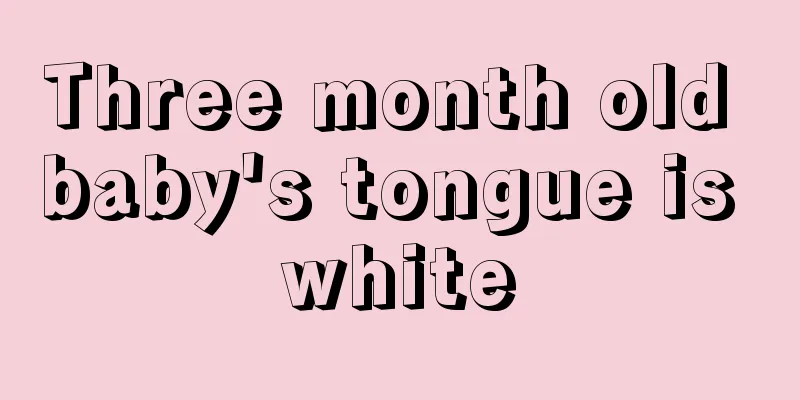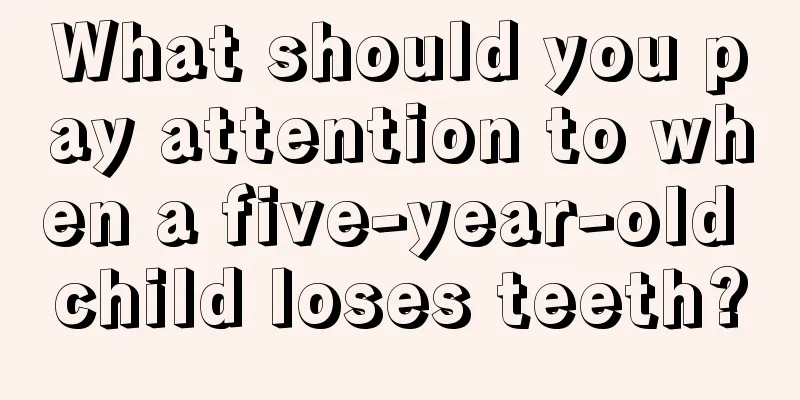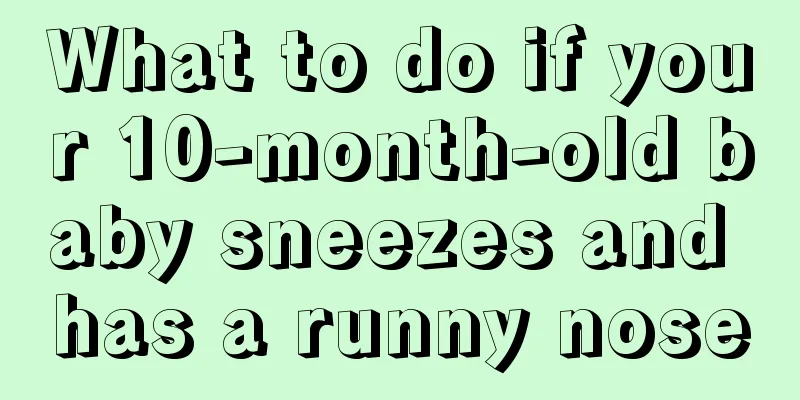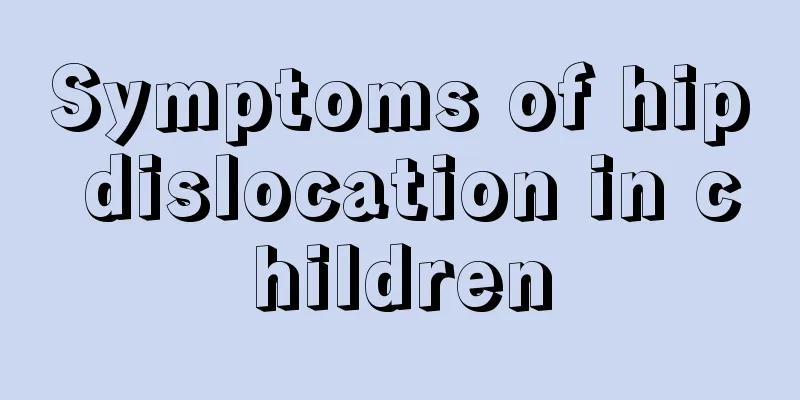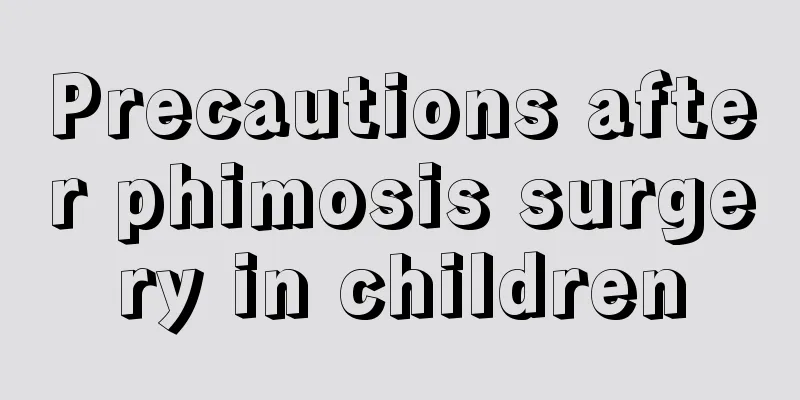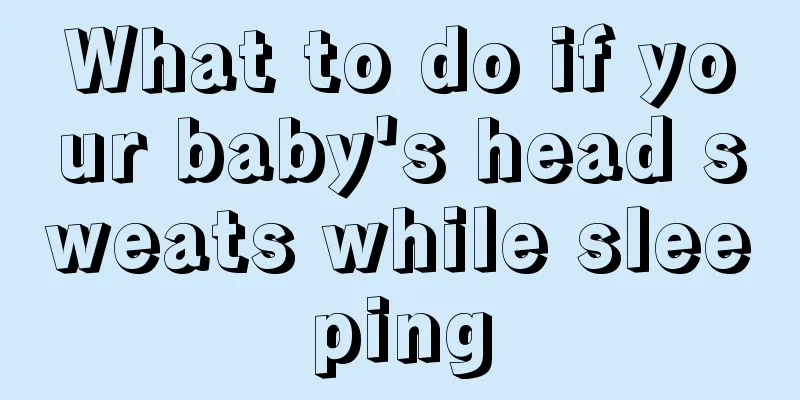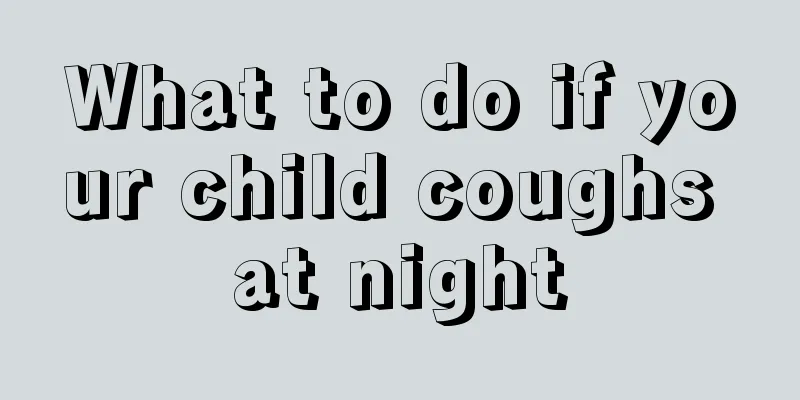How to relieve the crying of babies when they are teething
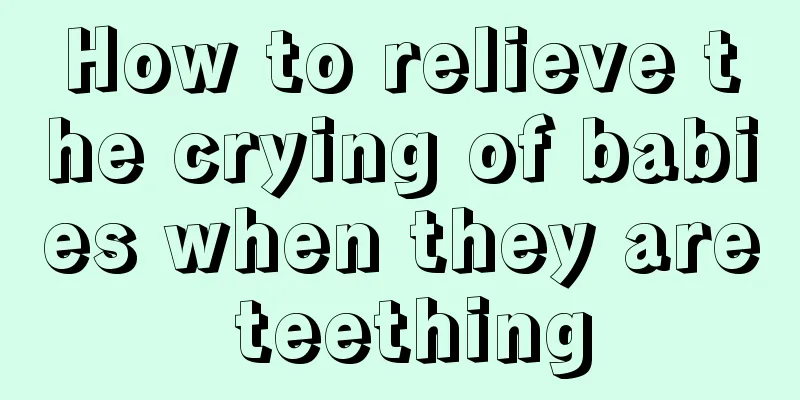
|
Generally speaking, when a baby reaches April, he or she will start to grow teeth. Every baby has a different physique, so the time when teething starts is also different. Some babies grow teeth early, while others grow teeth slowly. Babies will experience varying degrees of discomfort when their teeth are growing. At this time, the baby will show itchy gums, fever, and easy crying. How to relieve the baby's crying during teething? Here are some ways to relieve your baby’s crying while teething: 1. Method 1 Teething is generally painless, but some babies may feel uncomfortable and irritated. Mothers can put clean fingers or moist gauze into the baby's mouth and rub the gums, which will help the baby. Cool teething rings can also be used to soothe your baby's gums as they grow teeth. 2. Method 2 It is important to use teething tools such as teethers correctly and selectively. Excessive use of teethers is not good for babies. 3. Method 3 Teething in babies does not cause fever. Some babies will have a fever when they are teething. If the mother finds that the baby has a fever when teething, she should take the baby to see a doctor and receive symptomatic treatment after examination. 4. Method 4 Breastfeeding is beneficial to your baby's tooth development. 5. Method 5 Babies can use a cup when they are 6 months old, but stop using a bottle when they are 1 year old. These are beneficial to the baby's tooth development. 6. Method 6 Just add some water or regular pure milk between meals. Don't let your baby drink fruit juice or other beverages because they contain a lot of sugar, which can easily induce tooth decay. If the mother wants to give the baby some juice or milk with sweetener, she can let the baby drink it directly during meals. 7. Method 7 When the baby's first tooth comes out, the mother should brush the baby's teeth twice a day. The most important time is before bed at night. Use a soft baby toothbrush, apply a small amount of toothpaste, and gently brush his teeth. Be careful not to let your baby swallow toothpaste. 8. Method 8 Pay attention to the correct feeding method and avoid holding the bottle too high. If the baby has bad habits such as sucking fingers, biting lips, chewing objects, sticking out tongue, protruding lower jaw, and using pacifier for too long, the mother should correct them in time, because these factors will cause the baby's teeth to become overbite, that is, the baby's lower front teeth bite the outside of the upper front teeth, and the lower jaw protrudes. |
<<: What are the specific symptoms of fever in newborns?
>>: What simple methods are most effective for children with nasal congestion?
Recommend
Children's nose ulcer
When children have nasal sores due to inflamed no...
Are babies afraid of heat?
An experienced confinement nanny will tell mother...
What can children eat to treat constipation?
Some babies eat very little every day. When this ...
What is the best way to improve children’s immunity?
Immunity, also known as resistance, is an ability...
How old is the baby when all the teeth grow
Many parents hope that their baby's teeth can...
What causes children's joints to crack?
Joint clicking is a common phenomenon and is a co...
Infant development indicators at each stage
Newborn babies are still relatively unfamiliar wi...
What to do if your child keeps coughing? Patting the back is effective!
Cough is a common clinical disease, most of which...
How to deal with children's cough and phlegm
Many parents are very distressed about their chil...
How many months can a pacifier be used?
If you have a child, you must know what a pacifie...
How to treat drooling in children
It is normal for children to drool. It is not com...
Baby always chokes and coughs while sleeping
The baby is young, weak, and his organs are not f...
When can a baby sit in a stroller?
Every family needs a child. Only with a child can...
What kind of juice is good for babies with fever?
What parents hate to see most is their baby getti...
Wrinkles on the forehead of a child
Generally speaking, children's skin is relati...

